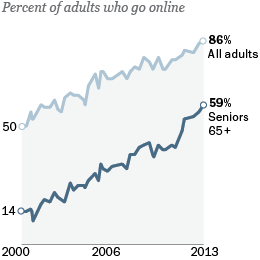The Center for Disease Control and Prevention defines “Epidemic” as an increase, often sudden, in the number of cases of a disease above what is normally expected in that population in that area. Whenever there is an epidemic of any disease, Public Health Physicians and doctors in general pay a careful attention to the trend and devote time and effort into studying their progression. Like detectives, doctors assess the triggers and factors influencing the epidemic in the hope of forecasting its future trend and how it will affect the population in general.
There is a digital epidemic happening in the virtual world that doctors have not paid much attention to. There is a major worldwide shift in patient and population behavior in the way a person relate to information, including health information. This change significantly influences the nature of the therapeutic relationship between health care providers and patients.
I call this a Social Media Epidemic. You can call it anything else. Many health providers think that this is a passing trend; that social media is for teenagers doing “#selfies” and new parents posting endless baby photos on the internet. Some think that social media is an infinite repository of cat videos. Others think that social media is a place for trolls venting out their issues with society.
Social media, like the ubiquitous personal phone, is here to stay and it will change the way a patient meanders through their health journey.

Last year, Pew Research Center reports that 86% of all adults use the internet, and 59% (and increasing) of those above 65 go online. These are the big health consumers. There is a Social Media Epidemic in all age groups in general including the elderly population.
What is social media? Traditional media is a one-way information delivery, while social media is a two-way engagement. The key word here is engagement. In essence, social media allows the average person to engage with news, information and health data. They curate their own personalized news, share, like, retweet, comment and disseminate to their own social networks through Facebook, Twitter, Instagram, Pinterest, YouTube and other platforms. What is significant here is that the common person is no longer a passive receiver of information, but an active ‘engager’ of it.
This is a significant shift. This is good. The Age of Authority is out, The Age of Authenticity is in. The Age of Control is out, The Age of Collaboration is in. We can now engage a patient beyond the walls of the consultation room. Power on the road to health is back in the hands of the patient. The commercial world and other industries have caught this early. The health industry is, unfortunately, a step behind. We have yet to reach our “Tipping Point”. There are still many health care workers who have yet to embrace Social Media, which is rapidly becoming Normal Media.
The power of social media to enhance the clinician-patient relationship is waiting to be tapped. There is a disturbance in the force. We can add great health information on social media to overcome misinformation. We can enhance a face-to-face consultation with great pre-consult introduction and post-consult recommendation through social media. We can reduce patient anxieties by adding valuable videos on conditions and treatments. We can design health Apps that would augment recovery. Patients can find confidential support groups through Facebook. Social Media is a ubiquitous, free, accessible health tool that is waiting to be used for patients’ benefit. It’s a force waiting to be awakened.
And what if a clinician says to me “I don’t need Social Media in my practice.” I shall say, “That’s ok. I just need to let you know that your patients have moved.” Geographically, they have moved from the physical to the virtual. Many health care engagements are now occurring in the virtual world through social media. Patients engaging health information through social media is only going to get more common, more acceptable, and more normal.
Someone else may say, “I find your lack of faith in Social Media disturbing.”
Do you think this social media epidemic is here to stay? How does that change the way we work as clinicians?

